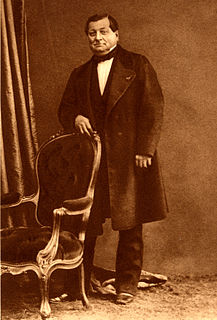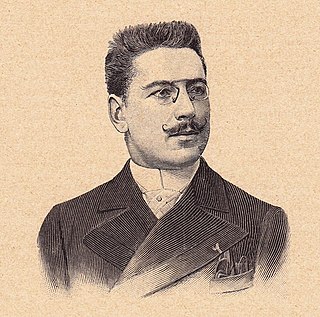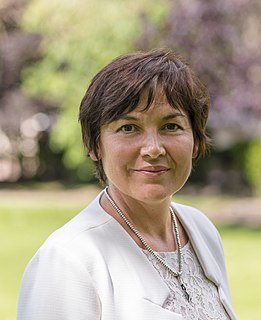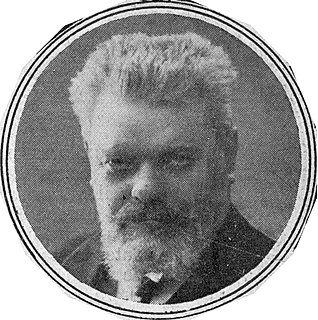Jules Girardin (1832-1888) was a French writer.

Octave Mirbeau was a French novelist, art critic, travel writer, pamphleteer, journalist, and playwright, who achieved celebrity in Europe and great success among the public, while still appealing to the literary and artistic avant-garde with highly transgressive novels that explored violence, abuse and psychological detachment. His work has been translated into thirty languages.

François Élie Jules Lemaître was a French critic and dramatist.

Émile de Girardin was a French journalist, publisher and politician. He was the most successful and flamboyant French journalist of the era, presenting himself as a promoter of mass education through mass journalism. His magazines reached over a hundred thousand subscribers, and his inexpensive daily newspaper La Presse undersold the competition by half, thanks to its cheaper production and heavier advertising. Like most prominent journalists, Girardin was deeply involved in politics, and served in parliament. To his bitter disappointment, he never held high office. He was a brilliant polemicist, a master of controversy, with pungent short sentences that immediately caught the reader's attention.

Delphine de Girardin, pen name Vicomte Delaunay, was a French author.

Jules Arsène Arnaud Claretie was a French literary figure and director of the Théâtre Français.

Jean Baptiste Alphonse Déchauffour de Boisduval was a French lepidopterist, botanist, and physician.

Pierre-Jules Renard was a French author and member of the Académie Goncourt, most famous for the works Poil de carotte and Les Histoires Naturelles. Among his other works are Le Plaisir de rompre and the posthumously published Huit Jours à la campagne.

Catulle Mendès was a French poet and man of letters.

Ernest Hello was a French Roman Catholic writer, who produced books and articles on philosophy, theology, and literature.

Paul-Armand Silvestre was a 19th-century French poet and conteur born in Paris.

Marie Françoise Sophie Gay was a French author who was born in Paris.

Léon Alfred Fourneau was a French humourist, music-hall artist, playwright and songwriter. Originally trained as a lawyer he invented the stage- and penname Xanrof by inversion of the Latin fornax of his French surname fourneau ("furnace"), before finally legally changing his name to Léon Xanrof. Yvette Guilbert experienced early success singing Xanrof's songs at Rodolphe Salis' cabaret Le Chat Noir.
Girardin is a French-language surname, in some cases a francization of Italian surname Gherardini. It may refer to:

Annick Girardin is a French government minister and a former member of the National Assembly of France. She represented the islands of Saint-Pierre and Miquelon, from 2007 to 2014 before being appointed Junior Minister for Development and Francophonie in April 2014 in the Valls Cabinet. Following the election of President Emmanuel Macron in May 2017, she was appointed Minister of Overseas France in the new Philippe Government.

Charles-Jean Grandmougin was a French poet and playwright. He lived in Paris. Two of his poems appeared in the third and final volume of Le Parnasse contemporain (1876). His poetry has been set as songs by composers including Fauré, Chaminade, Boulanger, Pierné and Bizet. He was more well known as a librettist and translator for operas and oratorios. He wrote the libretto for César Franck's opera Hulda, set in 11th-century Norway, and based on the play Lame Hulda (1858) by Norwegian writer Bjørnstjerne Bjørnson. He also wrote the libretto for La Vierge, an oratorio by Jules Massenet.
Guy de Maupassant wrote short stories, novels, travel accounts and poetry.
Théodore Georges Fath was a 19th-century French playwright, illustrator and writer as well as Jacques Fath's great-grandfather.

Jules Moinaux, real name Joseph-Désiré Moineaux or Moineau was a 19th-century French writer, playwright, and librettist. Georges Courteline, whose civil status name was Georges Moinaux, was his son.

Charles Albert d'Arnoux, known as Bertall or Tortu-Goth was a French illustrator, engraver, caricaturist, and early photographer.

Léon Séché was a French poet.